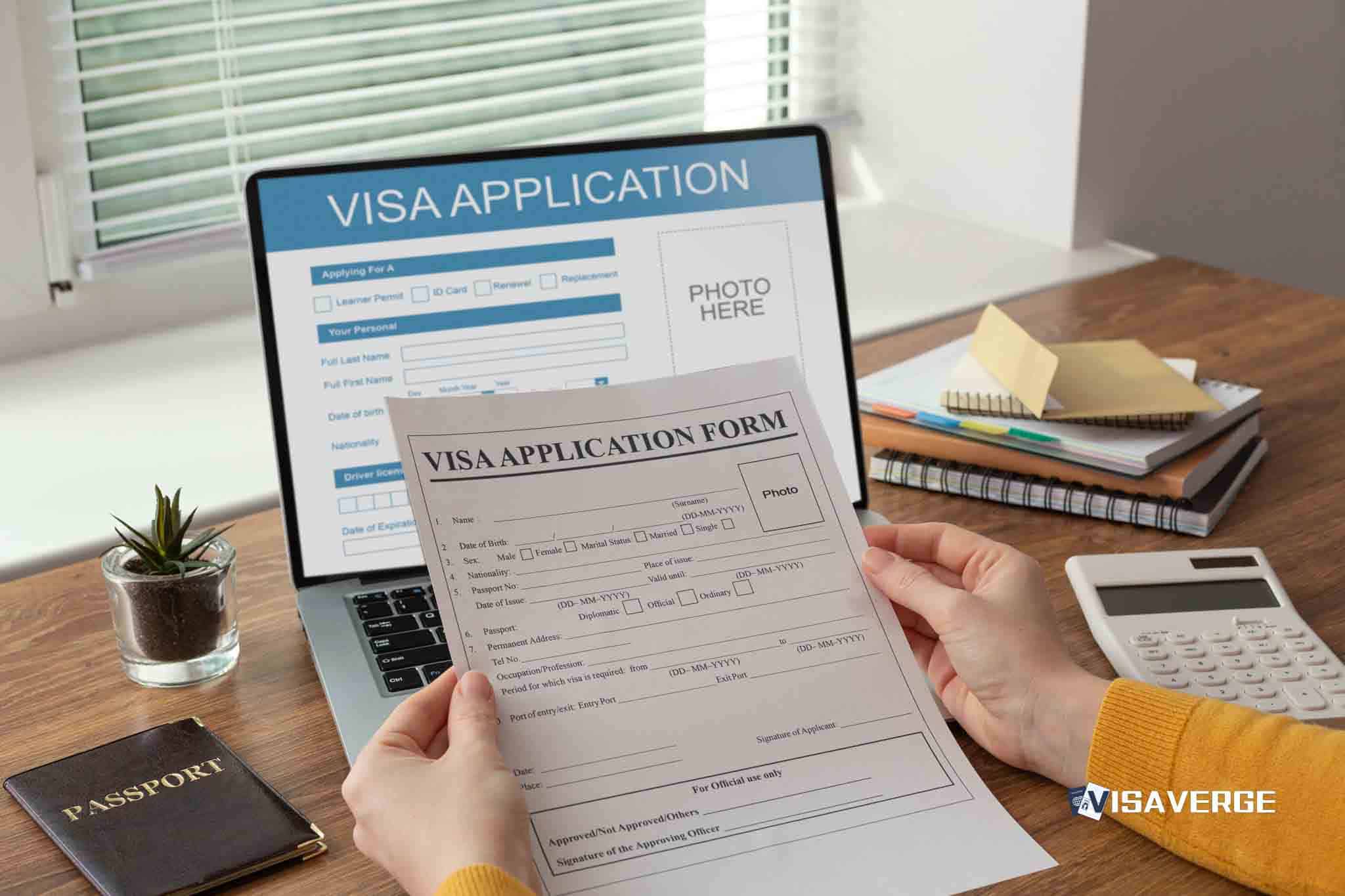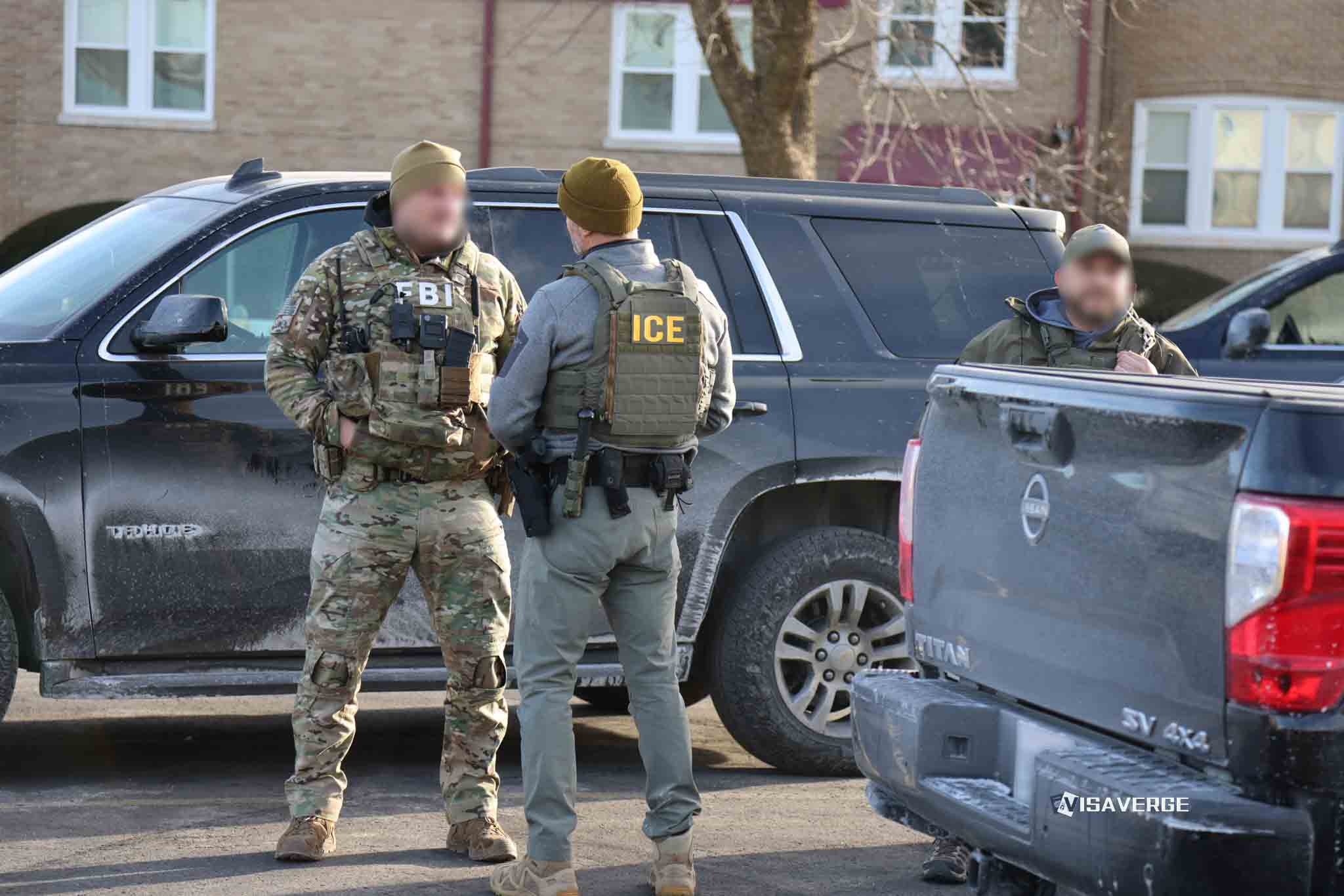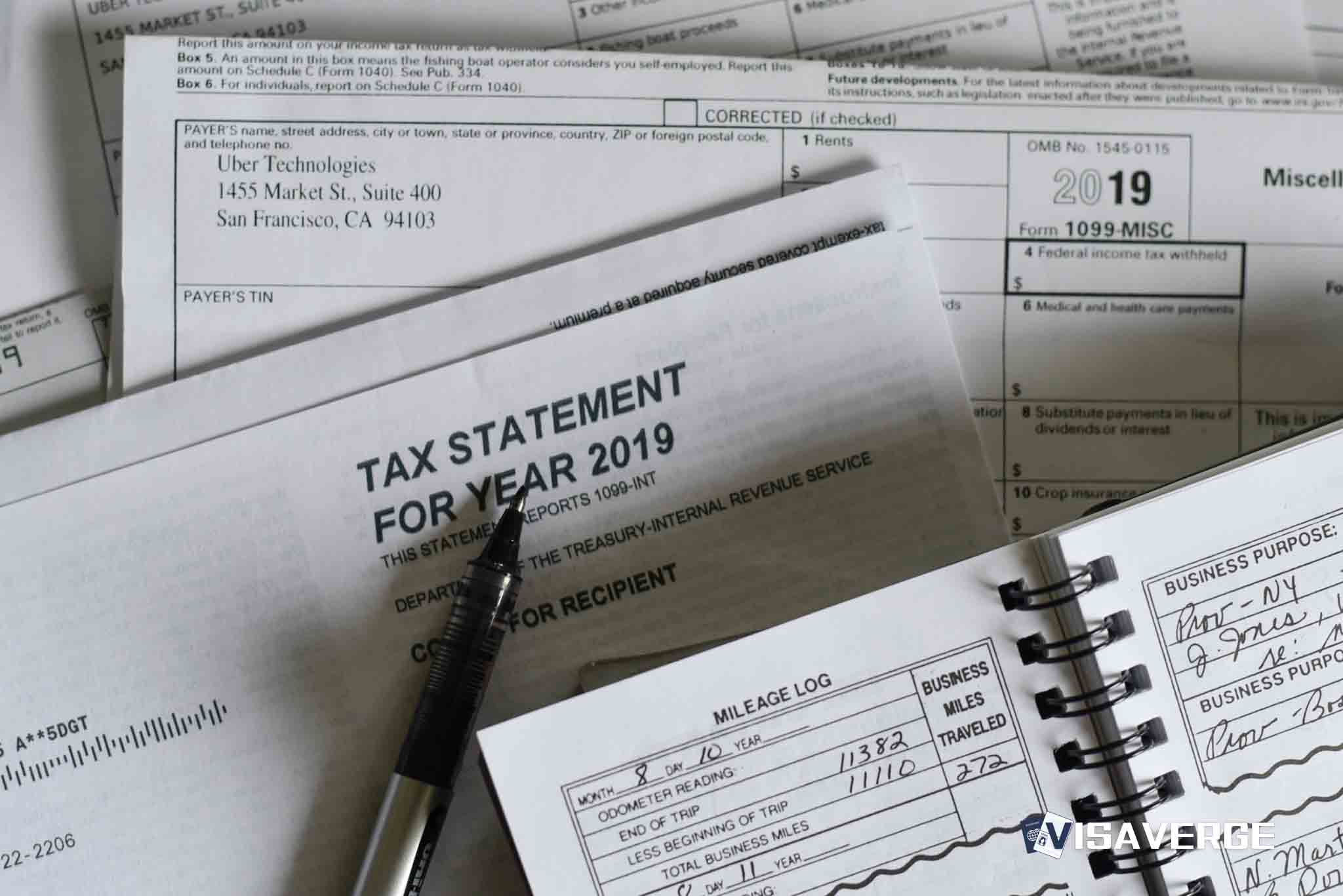If you are currently in the United States on a B1 visa, which is primarily designated for business travelers, but circumstances have changed, and you find yourself needing protection or to assist law enforcement, you may be considering transitioning to an S visa. Understanding the process of transitioning from a B1 to an S visa is critical to ensure that you make informed decisions and follow the correct legal avenues.
Understanding the S Visa
The S visa is a non-immigrant visa offered to individuals who have critical information and are willing to assist law enforcement or government officials in criminal investigations or prosecutions. The visa serves as an incentive for witnesses and informants to provide essential information that can be pivotal in legal cases.
Eligibility for S Visa Status Change
To change from a B1 visa to an S visa, you must be an informant who possesses crucial information about a criminal organization or enterprise. Additionally, a federal or state law enforcement agency, or a U.S. court, must certify that your contribution as a witness or informant is necessary to the success of the investigation or prosecution. Once this is established, the law enforcement agency can request the S visa on your behalf.
The Visa Status Change Process
The visa status change process, commonly referred to as a visa “adjustment,” begins with your sponsor, usually a government entity, submitting a form I-854, “Inter-Agency Alien Witness and Informant Record,” to the United States Citizenship and Immigration Services (USCIS). This form provides USCIS with the necessary information to assess your request for the S classification.

Once the I-854 is approved, the next step is to apply for a change of status. As someone already in the U.S. on a B1 visa, you should file Form I-539, “Application to Extend/Change Nonimmigrant Status,” before your current status expires. Accompanying this application should be the supporting documents and certification from the law enforcement agency that proves your eligibility.
Advantages of Transitioning to an S Visa
Transitioning to an S visa comes with several benefits:
- You are allowed to live and work lawfully in the United States while your information or testimony is needed.
- Dependents, such as your spouse and children, may also be eligible to live in the U.S. with you under the S-7 classification.
- In some cases, individuals with an S visa can apply for permanent resident status if they meet certain conditions.
Disadvantages of the S Visa
Despite the advantages, there are some limitations to consider:
- The transition to an S visa is not guaranteed and requires certification by a law enforcement entity.
- There is a cap of 200 S visas for criminal informants and 50 for terrorists’ informants issued annually, which can limit availability.
- As an informant, you may be assuming risk by providing information on criminal activities or organizations.
Conclusion
The process of changing from a B1 to an S visa requires careful consideration and cooperation with law enforcement agencies. While it opens the door to lawful residence and work authorization in the U.S., it does come with risks and limitations. It’s crucial to consult with an immigration attorney to navigate this complex process successfully.
For official guidance and to begin the process, interested parties should refer to the USCIS’s website and the U.S. Department of State’s resources for visas. Their dedicated pages for both B-1 visas and S visas will provide the most current and authoritative information.
Remember, first and foremost, it’s essential to maintain a legal status in the United States while pursuing a change of visa status. Ensuring adherence to all immigration laws during your stay will put you in the best position to successfully change your visa status.
Still Got Questions? Read Below to Know More:
Are there any public services or support systems available for people on an S visa due to safety concerns linked to their informant role
Individuals on an S visa in the United States, commonly known as “Snitch Visa,” provided to informants or witnesses who assist U.S. law enforcement, have access to certain public services and support systems. These services are designed to ensure their safety and help them adapt to life in the U.S. while they fulfill their role as informants or witnesses. Specifically:
- Legal Services: S visa holders may receive legal assistance related to their status and rights in the U.S. Nonprofit organizations and pro bono attorneys often provide these services.
- Support for Basic Needs: Various community organizations and charities offer support with housing, food, and clothing, which can be crucial for someone starting anew due to safety concerns. Federal benefits, however, may be limited, as nonimmigrant visa holders are generally not eligible for federal public assistance programs.
-
Safety and Protection: Informants may receive protection services from the law enforcement agency they are assisting. The level of protection will vary depending on the level of risk to the individual and their family.
It’s important to check with the specific law enforcement agency involved or an experienced immigration attorney for the most accurate information pertaining to the support available for S visa holders. For more detailed information about the S visa, you can refer to the official U.S. Citizenship and Immigration Services (USCIS) website: S Visa Nonimmigrant.
Please note that eligibility for services might change, and it would be best to consult with the local immigrant service organizations or the relevant government agency for the most current information.
If I lose contact with the law enforcement agency that’s sponsoring my S visa, who can I reach out to for help in maintaining my legal status
If you lose contact with the law enforcement agency sponsoring your S visa, which is designated for individuals assisting law enforcement as witnesses or informants, it is critical to act quickly to maintain your legal status. Here are the steps you should take:
- Contact the Law Enforcement Agency: Try to re-establish communication with your original point of contact at the law enforcement agency. They are responsible for your S visa sponsorship and can provide guidance on your status.
- Reach Out to U.S. Citizenship and Immigration Services (USCIS): If you’re unable to reconnect with the agency, contact USCIS directly for assistance. You can reach out to the USCIS Contact Center by calling 1-800-375-5283 or visit their ‘Contact Us’ page: USCIS Contact Us.
-
Consult with an Immigration Attorney: An immigration attorney can provide personalized guidance and assist you in communicating with government agencies to resolve your issue. The American Immigration Lawyers Association (AILA) can help you find a reputable attorney: AILA’s Immigration Lawyer Search.
Remember, maintaining communication with the sponsoring agency and USCIS is essential for keeping your S visa status. Ensure you keep a record of all attempts to contact pertinent parties, as this can be beneficial should you need to explain your situation to immigration authorities.
For your reference and further reading on the S visa program, here is the USCIS link regarding S Nonimmigrant status: USCIS S Nonimmigrant Status. It’s crucial to ensure your actions align with the USCIS guidelines and that you seek assistance without delay to avoid any complications with your immigration status.
What happens to my S visa if the investigation I’m helping with suddenly ends or is no longer needed by the authorities
If you are in the United States on an S visa, which is granted to individuals who assist law enforcement in criminal investigations or prosecutions, your status is contingent on the need for your assistance in the investigation. If the investigation you’re helping with suddenly ends or is no longer needed by the authorities, there are a few important points to consider:
- Notification to USCIS: The law enforcement agency that sponsored your S visa is required to notify U.S. Citizenship and Immigration Services (USCIS) once your assistance is no longer needed. According to USCIS guidelines, “The head of the federal or state law enforcement agency, or the head of the court, that had responsibility for the investigation or prosecution provides a declaration to USCIS confirming that the witness or informant has completed his or her responsibility to the investigation or prosecution.”
- End of Stay: Generally, once the authorities determine your assistance is no longer necessary, you may no longer have the legal basis to maintain your S nonimmigrant status. In such situations, without another legal basis to stay, you may need to leave the United States to avoid overstaying your visa, which can have negative implications on your ability to return to the U.S. in the future.
-
Changing Status: If you wish to remain in the United States, you might explore options for changing your status to a different visa category for which you may be eligible. This could depend on a variety of factors, such as family ties, employment opportunities, or other qualifications that meet the criteria for a different visa classification. You would need to apply and be approved for this new status before your current S visa expires to maintain lawful presence in the U.S.
For more detailed information and for assistance with your specific case, it’s recommended you consult an immigration attorney or reach out directly to USCIS. Additionally, visit the USCIS official website, providing detailed information on S Visas: USCIS – S Visa.
Remember that immigration laws can be complex, and personal circumstances are unique, so professional guidance is crucial for navigating the next steps after the conclusion of an investigation you were assisting with.
What should I do if my B1 visa is close to expiring but I’m still waiting for law enforcement to sponsor my S visa application
If your B1 visa is close to expiring, but you’re awaiting a law enforcement agency (LEA) to sponsor your S visa application, you should take immediate action to ensure you maintain lawful status in the United States. Here are the steps you should follow:
- Contact the Law Enforcement Agency: Reach out to the LEA involved in your case to check the status of your S visa sponsorship process. Clarify to them that your B1 visa is expiring soon, and request prompt action. It’s essential to establish clear communication with the agency.
- Extend Your B1 Visa: File for an extension of your B1 visa as soon as possible if you’re eligible. You can apply for an extension by filing Form I-539, “Application to Extend/Change Nonimmigrant Status,” with U.S. Citizenship and Immigration Services (USCIS) before your current visa expires. Keep records of your application receipt and any correspondence with USCIS.
- Here is the link to the USCIS page for Form I-539: USCIS Form I-539
- Consult with an Immigration Attorney: If there are complexities in your case or delays from the LEA, it’s advisable to consult an immigration attorney. They can provide guidance on your situation and can sometimes advocate on your behalf with the LEA or USCIS.
If your visa expires while awaiting the S visa sponsorship and you have not filed for an extension, you could fall out of status, which could negatively impact your ability to remain in the U.S. or obtain a visa in the future. It’s always advised to maintain legal status while in the United States.
Remember, the S visa is a nonimmigrant visa for individuals who assist law enforcement as witnesses or informants. The LEA must recommend you for this visa to the U.S. Department of Homeland Security for authorization. If your S visa application sponsorship is successful, the LEA will provide you with Form I-854, “Inter-Agency Alien Witness and Informant Record,” to proceed with your S visa application.
For additional information on the S visa, you may visit the U.S. Department of State’s S nonimmigrant visa page: U.S. Visas for Victims of Criminal Activity.
Can my family join me right away if I switch from a B1 visa to an S visa, or is there a waiting period
When you switch from a B1 visa, which is meant for business visitors, to an S visa, designed for individuals who assist law enforcement as witnesses or informants, your family may be able to join you, albeit under specific conditions. The S nonimmigrant visa has two categories: S-5 for criminal informants and S-6 for terrorism informants. Depending on which category you fall under, your family members might be eligible for derivative status. However, there is no standardized waiting period mentioned for family members to join an S visa holder; the process will depend on individual circumstances and the time it takes for their individual applications to be processed.
According to the United States Citizenship and Immigration Services (USCIS), the family members who could be eligible to join you include your spouse, married and unmarried children under 21, and in some cases, parents and siblings. To initiate the process for them to join you:
– You must first adjust your status to S nonimmigrant status.
– After you have adjusted your status, you may apply for derivative status for eligible family members.
For more specific and official guidance, it’s always best to refer to the USCIS website or contact them directly. For in-depth information about family members of S nonimmigrants, you can visit the USCIS S Nonimmigrant page. Remember, immigration laws can be complex and are subject to change, so consider consulting with an immigration attorney for personalized legal advice on your family’s situation.
Learn today
Glossary or Definitions:
- B1 Visa: A non-immigrant visa that allows individuals to enter the United States for business purposes, such as attending meetings, conferences, or engaging in negotiations or consultations.
- S Visa: A non-immigrant visa offered to individuals who have crucial information and are willing to assist law enforcement or government officials in criminal investigations or prosecutions. It is granted to informants and witnesses and allows them to live and work lawfully in the United States.
-
Status Change: The process of transitioning from one immigration status to another, typically involving the submission of specific forms and supporting documents to the United States Citizenship and Immigration Services (USCIS).
-
Visa Adjustment: The process of changing one’s non-immigrant visa status to another non-immigrant or immigrant visa status while already in the United States.
-
Form I-854: “Inter-Agency Alien Witness and Informant Record” is the form submitted by a government entity or law enforcement agency to request an S visa on behalf of an informant or witness.
-
Form I-539: “Application to Extend/Change Nonimmigrant Status” is the form used to apply for a change of non-immigrant status, including transitioning from a B1 visa to an S visa.
-
Law Enforcement Agency: A federal or state agency responsible for enforcing laws, investigating crime, and maintaining public safety.
-
USCIS: United States Citizenship and Immigration Services is the government agency responsible for overseeing lawful immigration to the United States.
-
Dependent: In the context of immigration, a dependent refers to an individual, such as a spouse or child, who is eligible to live in the United States based on the primary visa holder’s status.
-
Permanent Resident Status: Also known as a green card, it grants individuals the right to live and work permanently in the United States.
-
Certification: A verification process where a law enforcement agency or U.S. court declares that an individual’s assistance as a witness or informant is necessary for the success of a criminal investigation or prosecution.
-
Cap: A limit on the number of visas that can be granted each year. In the case of S visas, there is a cap of 200 for criminal informants and 50 for terrorists’ informants per year.
-
Immigration Attorney: A legal professional specializing in immigration law who can provide advice and guidance on navigating the immigration process and ensure compliance with laws and regulations.
-
U.S. Department of State: The government agency responsible for issuing visas and managing U.S. foreign policy, including consular services and diplomatic affairs.
-
Legal Status: The immigration status that allows individuals to legally reside in the United States and engage in authorized activities. It is important to maintain legal status to pursue a change of visa status successfully.
So, there you have it! Transitioning from a B1 to an S visa can be a game-changer if you find yourself needing protection or assisting law enforcement. But remember, it’s a process that requires careful consideration and collaboration. If you’re intrigued and want to delve deeper into this topic or explore other visa options, head over to visaverge.com for more valuable insights.









